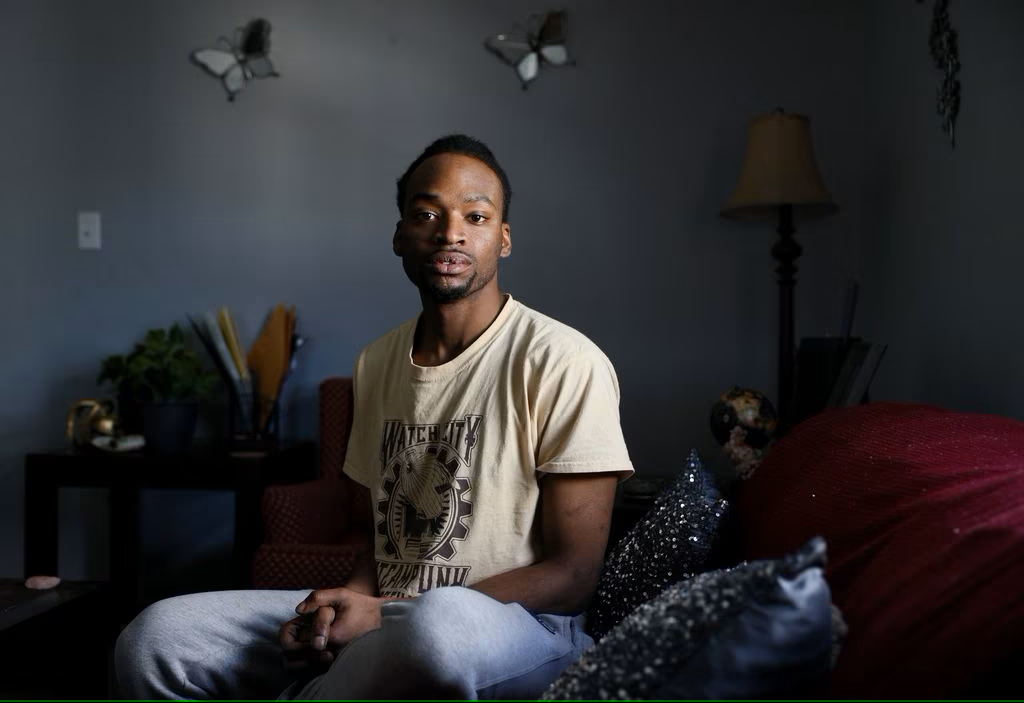‘We are pushing people to the brink of eviction and homelessness,’ said an official with the Massachusetts Coalition for the Homeless
By Diti Kohli Globe Staff,Updated March 28, 2023, 5:22 p.m.
When the pandemic first struck, Edson Costa lost his job and fell into a bout of depression so debilitating, he said, that “I couldn’t even do the work I had found.”
The unpaid rent balance on his Lynn two-bedroom ballooned, until his landlord handed him an eviction notice in 2021. But when Costa later showed up to court, the judge put his case on hold, because Costa had filed an application for rental assistance that was still pending — giving him protection under a temporary COVID-era law dubbed Chapter 257.
“I was able to stay where I was with no issues,” said Costa, 56. “At least, for a while. It saved me.”
Now, to the dismay of tenants like Costa and Massachusetts housing advocates, that policy is set to end, at a time when evictions are rising. Just over two years after it took effect, Chapter 257 expires on Friday, meaning that landlords will once again be able to evict renters even if they’re trying to tap financial aid.
In a letter to legislators, advocates argued the action would scrap an “essential protection” and displace residents at a faster clip.
Related
‘I’m at my wit’s end’: Welcome to the underbelly of the region’s housing crisisMass. fended off a feared wave of evictions for two years. But with aid drying up, some worry it’s coming soon.In pandemic’s aftermath, small landlords are still feeling the pressure
Eviction filings are already creeping back up to prepandemic levels and have nearly doubled over the last year. In January and February 2023, Massachusetts landlords filed 4,984 eviction cases for nonpayment of rent, according to data from the Housing Court. In 2022, that number was 2,554.
Extending Chapter 257 through July 2024 — as the letter encourages — would keep thousands in their homes, said Andrea Park, director of community driven advocacy at the Massachusetts Law Reform Institute.
“Why would we allow people to become homeless,” she said, “when a check is in the mail?
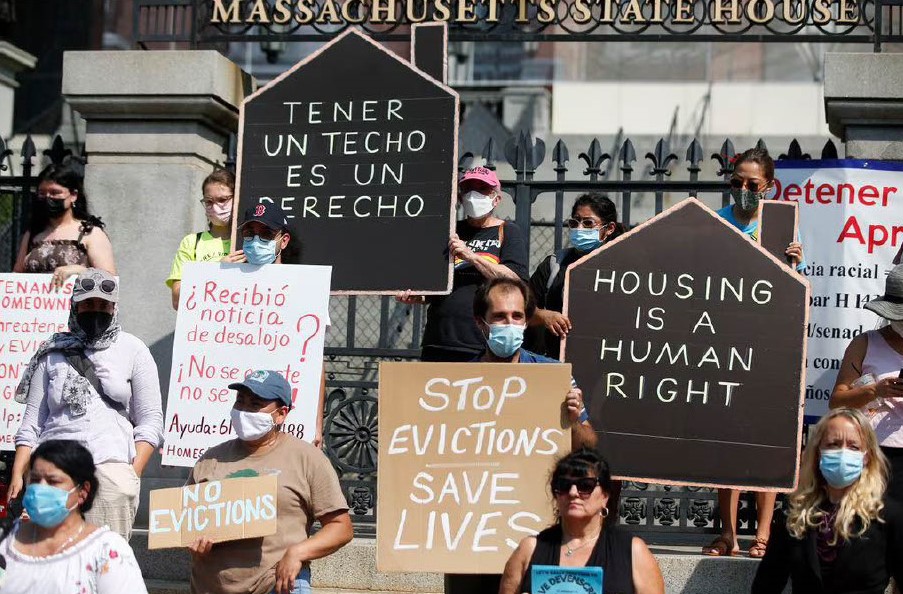
The termination of the policy has also received mixed reviews from landlords.
Many were OK with Chapter 257 as long as there was rental aid to pay the bills for tenants who could not. Now that aid is shrinking, potentially leaving landlords on the hook. Others have tenants who’ve maxed out on relief programs and still owe them money. Chapter 257 would make it harder to evict and replace them with new tenants who can pay.
Chapter 257 “can add several months to the case, during which time landlords see more rent loss and legal fees,” said Richard Vetstein, an attorney who filed a lawsuit that hastened the end of the state’s eviction moratorium in 2020. “They lose out.”
It’s all happeningat a precarious time for tenants. Rental relief funds have dwindled in the past year, as money allocated in the depths of the pandemic has dried up. Massachusetts has distributed roughly $1 billion in rental aid to tenants and their landlords since the start of COVID. But the federal program that accounted for most of the funds stopped accepting applications in April 2022, and the state has tightened requirements, and available funds, for its primary alternative — Residential Assistance for Families in Transition (RAFT).
In August, the Department of Housing and Community Development reintroduced a requirement that tenants show they had received a notice to quit, the first step in the state’s three-part eviction process, to qualify for RAFT. (It was removed earlier during COVID to make it less burdensome for people to access funds and kept their housing secure while the money came through.)
Federal funds covered 18 months of rent until last spring, but the state RAFT program now distributes only $10,000 per year to tenants.
Governor Maura Healy’s proposed budget for fiscal year 2024 extends the program, but trims its cap back further to $7,000 every two years. Prepandemic, RAFT allowed for $4,000 annually.
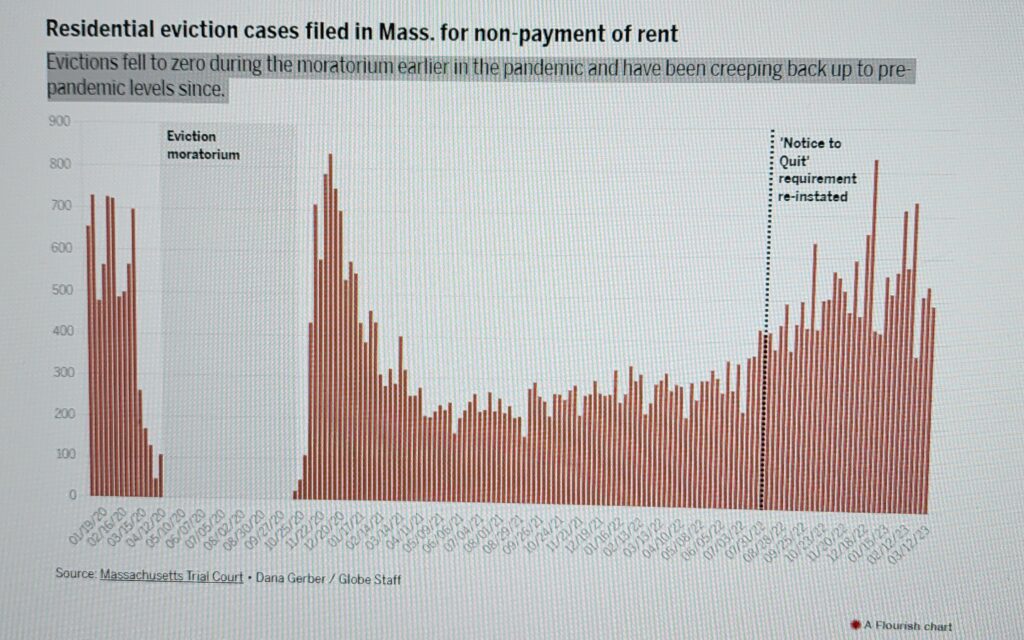
Asked Tuesday why her administration hasn’t sought to extend the Chapter 257 protections, Healey indicated that it and other pandemic-era programs were emergency measures.
“These things are related to COVID, really,” she said. “The federal public health emergency is ending and as a result, programs and initiatives that we put in place as a state to take care of people in vulnerable times and vulnerable circumstances are also ending.”
To Kelly Turley, associate director of the Massachusetts Coalition for the Homeless, that’s a troubling reality — one that could be eased by extending Chapter 257.
“We are pushing people to the brink of eviction and homelessness, even though prolonging this policy is an effective solution,” she said.
Doug Quattrochi, executive director of MassLandlords, said the concept of pushing off eviction proceedings while rent relief is on the way makes sense, “but the actual implementation of it doesn’t work that way.”
His group sued the Department of Housing Community and Development in December 2021, saying the state lost 47,000 RAFT applications during the pandemic and stopped crucial rent money from reaching owners’ pockets. The program hit several road bumps ramping up in the initial months of COVID, before then-governor Charlie Baker gave the agencies money to hire more staff.
Even with added funds, the state and contractors it hires to run RAFT can still takes weeks or months to process applications.
“That’s infuriating to landlords,” Quattrochi added.
Still, he is part of a coalition of people who have filed a bill to lift the RAFT cap to cover rent for a certain number of months, rather than a finite dollar amount — an amendment he believes could ease the burden on both sides of the aisle.
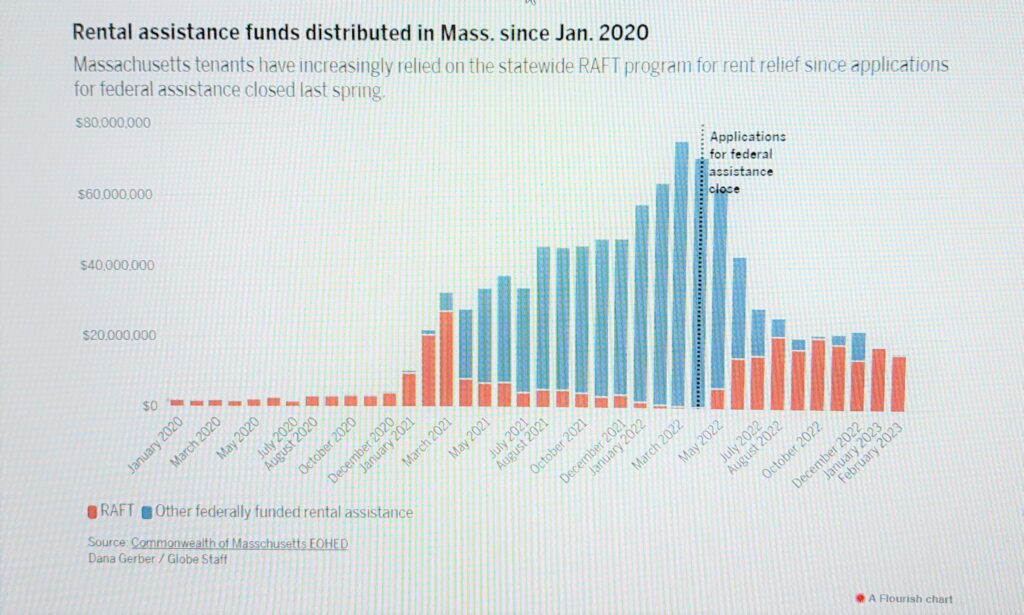
In February, three lawmakers filed legislation to make Chapter 257 permanent and another filed an amendment to the supplemental budget seeking another extension, but those proposals have made little headway.
What happens next will speak volumes to how Massachusetts supports vulnerable tenants, said Calvin, a 25-year-old Lynn tenant who requested anonymity to protect the privacy of family members.
He was able to stay in his one-bedroom apartment in November when a pending RAFT application halted his eviction proceeding. Eventually, rent relief came through, and Calvin regained his footing.
Without Chapter 257, he is not sure where he would be.
“Really,” he said, “that little rule changed my life.”
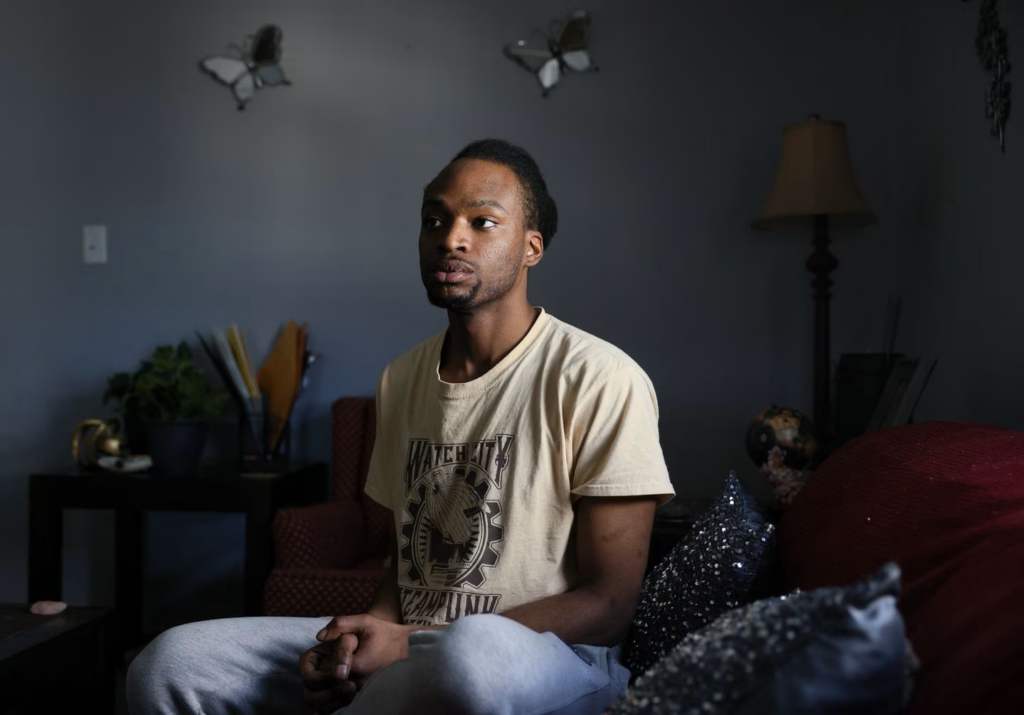
Matt Stout of the Globe Staff contributed to this report.
Correction: A previous version of this story misstated how much rent relief RAFT provided earlier in the pandemic.
Diti Kohli can be reached at diti.kohli@globe.com.Follow her on Twitter @ditikohli_.

